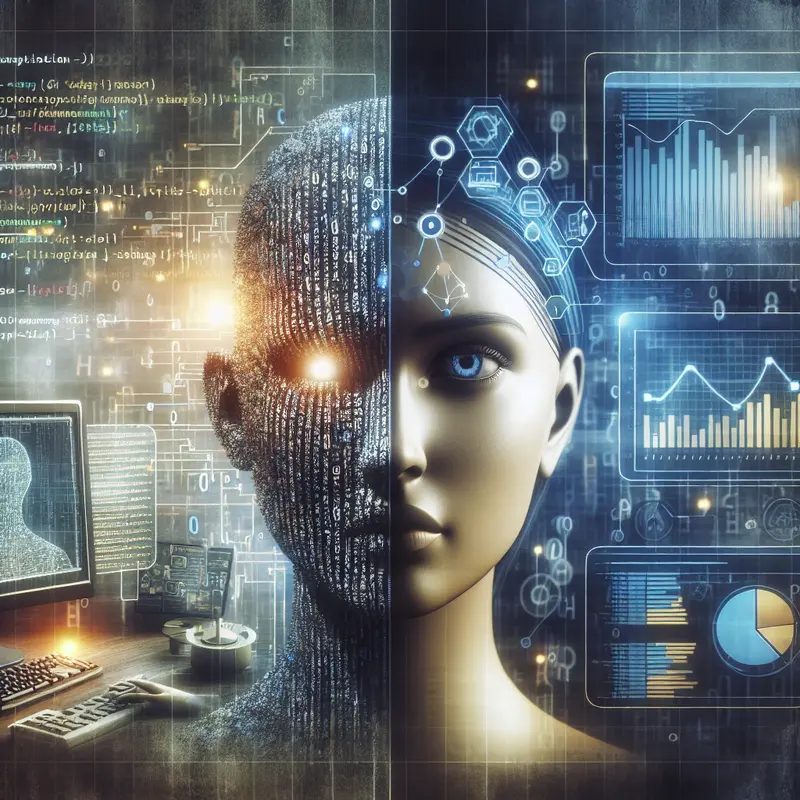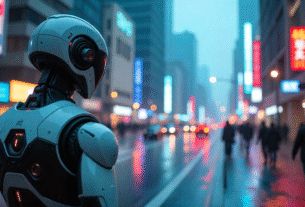Artificial Intelligence (AI) is no longer a futuristic concept; it’s already here, and by 2025, it will have transformed nearly every aspect of technology and daily life. AI is pushing the boundaries of innovation across industries, from healthcare and finance to entertainment and education. In 2025, AI will continue to reshape technology, offering new opportunities, improving efficiency, and driving innovation. Here’s how AI is shaping tech in 2025.
1. Enhanced Automation in Everyday Life
By 2025, AI-driven automation will be integrated into more aspects of everyday life, making tasks faster, more efficient, and more reliable. Smart homes, for instance, will use AI to learn user preferences and automate everything from lighting to temperature control and security features.
Key Developments:
-
Smart homes: AI assistants will manage household devices, creating environments that adapt to your schedule and routines.
-
Personalized automation: AI will predict needs based on data, adjusting the environment automatically, such as when to start your coffee machine or adjust lighting for work or relaxation.
-
Automated vehicles: Self-driving cars powered by AI will become more common, improving traffic efficiency and reducing accidents.
2. AI-Powered Healthcare Advancements
In healthcare, AI is accelerating innovations in diagnostics, personalized treatment plans, and patient care. By 2025, AI will play a central role in revolutionizing how healthcare is delivered, making it more precise, efficient, and accessible.
Key Developments:
-
AI in diagnostics: AI algorithms will analyze medical data faster and more accurately than human doctors, enabling earlier detection of diseases like cancer, heart conditions, and neurological disorders.
-
Personalized medicine: AI will help tailor treatments to individual patients based on their genetic makeup, lifestyle, and health history, offering more effective and less invasive treatment options.
-
Telemedicine: AI-powered platforms will assist doctors during virtual consultations, offering diagnostic support and helping doctors assess patient needs remotely.
3. AI-Driven Cybersecurity
With increasing threats to online security, AI will become essential for detecting, preventing, and responding to cyberattacks in real time. By 2025, AI-driven cybersecurity solutions will be more proactive, preventing potential attacks before they even occur.
Key Developments:
-
Predictive security: AI systems will analyze patterns of cyber threats, predict potential vulnerabilities, and stop cyberattacks before they affect organizations.
-
Behavioral analytics: AI will monitor user activity for any unusual behavior that could indicate a security breach, significantly reducing false alarms.
-
Automated threat response: AI-powered systems will instantly respond to cyber threats, minimizing downtime and data loss by taking immediate protective actions.
4. AI-Powered Personal Assistants and Productivity Tools
AI will continue to enhance personal productivity tools, making work more efficient and personalized. By 2025, AI-powered assistants will handle complex tasks, manage schedules, and improve workflow with advanced natural language processing and machine learning.
Key Developments:
-
Advanced virtual assistants: AI will anticipate your needs, schedule meetings, filter emails, and offer reminders or suggestions based on your preferences.
-
Automated workflows: AI tools will automate repetitive tasks like data entry, file management, and meeting coordination, freeing up time for higher-value work.
-
Smart collaboration: AI will help optimize team collaboration, ensuring the right information is shared at the right time, improving project management and task completion.
5. AI in Entertainment and Content Creation
In entertainment, AI will transform how we create and consume content. By 2025, AI will be used to generate personalized content recommendations, create art, and even produce music, all tailored to individual preferences.
Key Developments:
-
AI-generated content: AI will assist in creating realistic 3D models, generating music, and even writing scripts or articles, pushing the boundaries of creative expression.
-
Personalized entertainment: AI will curate content based on your preferences, suggesting movies, TV shows, music, and even video games tailored specifically to your tastes.
-
Interactive experiences: AI will enable more immersive virtual reality (VR) and augmented reality (AR) experiences, making gaming and entertainment more interactive and engaging.
6. AI in Business Decision-Making
AI will be integral to business decision-making by analyzing vast amounts of data to provide insights and guide strategy. In 2025, AI-powered analytics will help businesses optimize operations, improve customer service, and enhance overall efficiency.
Key Developments:
-
Data-driven decisions: AI will analyze large datasets to identify trends and generate business insights, helping executives make more informed decisions faster.
-
Customer service: AI-powered chatbots and virtual assistants will handle customer inquiries, providing quicker and more personalized responses.
-
Supply chain optimization: AI will predict demand, optimize inventory management, and reduce supply chain costs through smarter logistics and automation.
7. AI-Enhanced Education
AI is set to revolutionize education by offering personalized learning experiences and improving educational accessibility. By 2025, AI tools will assist in curriculum development, provide real-time feedback, and adapt to each student’s unique learning style.
Key Developments:
-
Personalized learning: AI will track student progress and offer tailored lessons, ensuring students receive the support they need to succeed.
-
Smart tutoring systems: AI-powered virtual tutors will provide additional support, answer questions, and offer personalized learning paths for students.
-
Automated grading: AI will assist teachers in grading assignments, providing more time for direct interaction with students and reducing administrative workload.
8. AI in Retail and E-Commerce
AI will continue to transform the retail and e-commerce sectors in 2025 by enhancing customer experiences, streamlining logistics, and improving inventory management. Businesses will use AI to predict consumer behavior and offer personalized shopping experiences.
Key Developments:
-
Personalized shopping experiences: AI will analyze past customer data to offer personalized product recommendations and marketing campaigns.
-
Smart inventory management: AI will predict product demand, manage stock levels, and optimize logistics to ensure efficient inventory management.
-
Voice-assisted shopping: Voice assistants powered by AI will allow consumers to shop online using voice commands, making the process faster and more convenient.
9. AI in Finance and Investment
AI will continue to play a pivotal role in transforming the financial industry in 2025. From helping individuals manage personal finances to revolutionizing investment strategies, AI will offer more accurate predictions and smarter investment tools.
Key Developments:
-
Robo-advisors: AI-powered robo-advisors will help individuals and businesses make smarter investment decisions based on real-time market data.
-
Fraud detection: AI will improve fraud detection in financial transactions by analyzing patterns and identifying anomalies faster than traditional methods.
-
Financial forecasting: AI systems will provide more accurate predictions for economic trends, helping businesses and investors make informed decisions.
10. AI-Driven Sustainability and Climate Change Solutions
AI is expected to play a critical role in combating climate change by optimizing energy use, reducing waste, and aiding in environmental conservation efforts. In 2025, AI will be used to predict climate patterns, improve sustainability efforts, and reduce carbon footprints.
Key Developments:
-
Energy optimization: AI will help businesses and homes optimize energy consumption, reducing waste and lowering costs.
-
Climate modeling: AI will be used to model climate change scenarios and develop strategies for mitigation and adaptation.
-
Smart agriculture: AI-driven systems will optimize farming practices, reduce waste, and improve crop yield while minimizing environmental impact.
Conclusion
In 2025, AI will be at the center of technological innovation, driving advancements across virtually every industry. From healthcare and education to business and entertainment, AI will continue to offer new solutions that improve efficiency, creativity, and sustainability. Embracing AI will be essential for individuals and businesses alike, as it shapes the future of technology and the way we live, work, and interact with the world.



